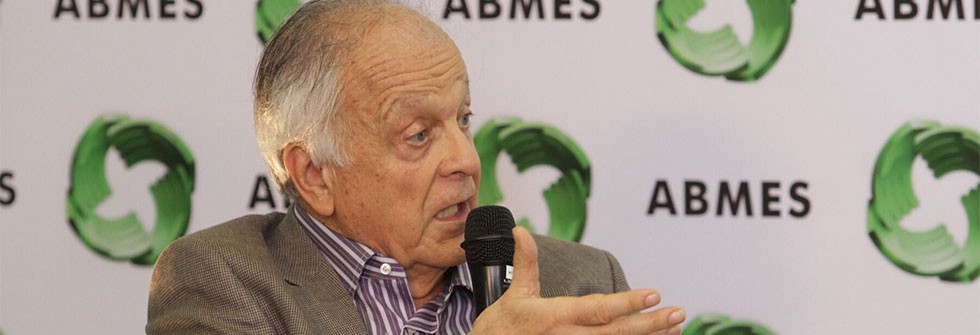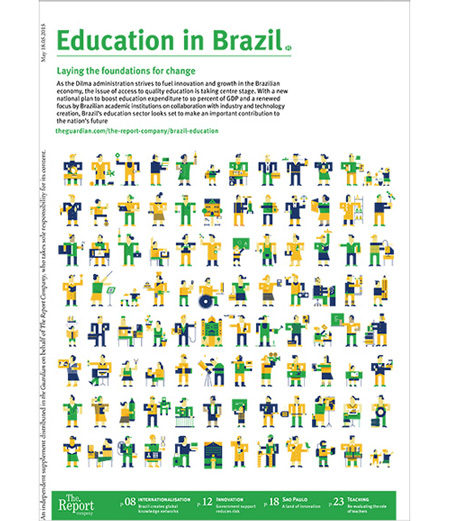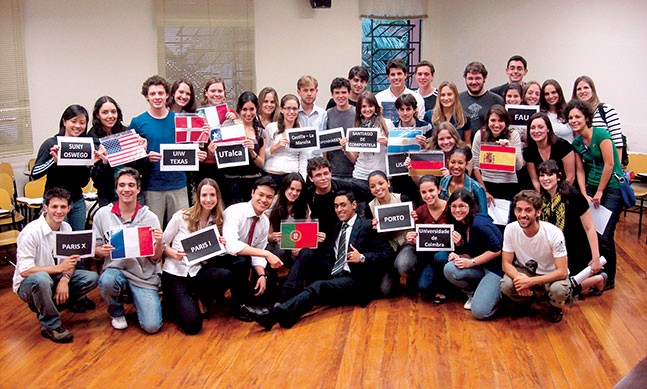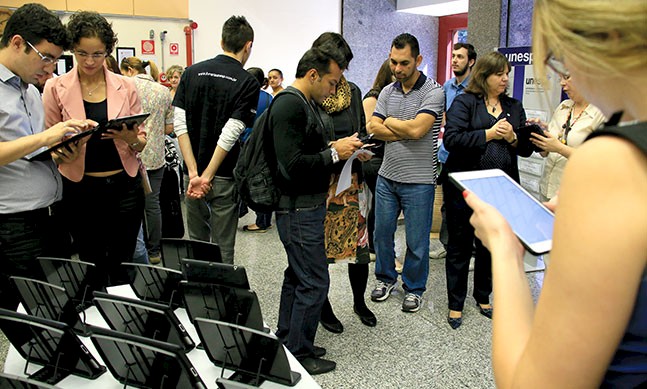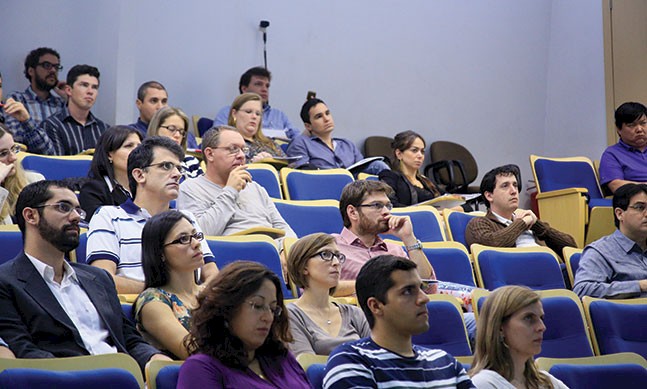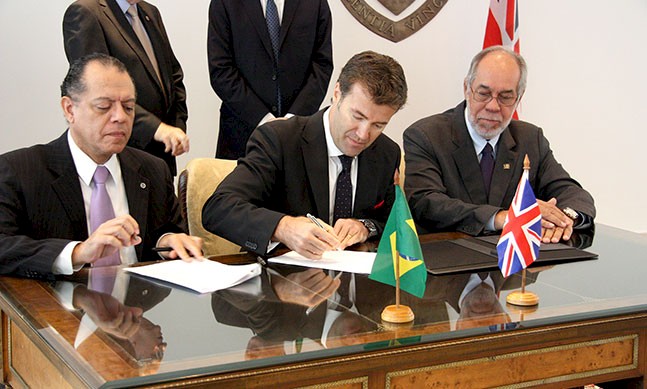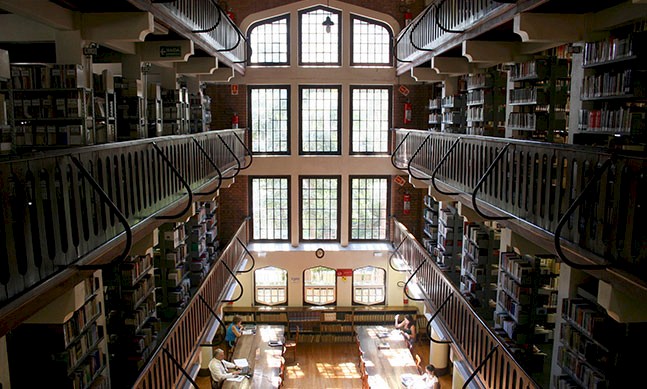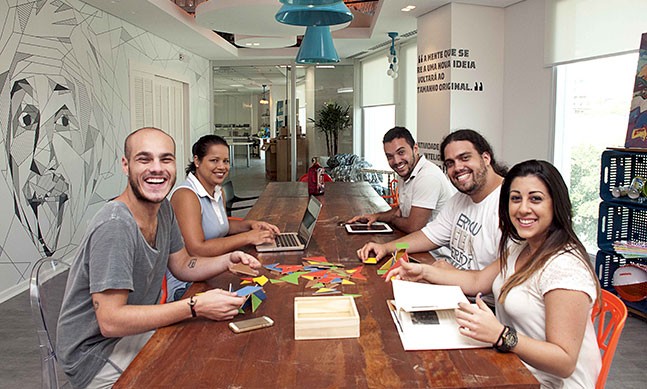The Brazilian Association of Defenders of Higher Education (ABMES) was established in 1982 to consolidate the growing demand and supply in higher education in Brazil. Its progressive president, Professor Gabriel Mario Rodrigues, was responsible for creating the country’s first ever course in tourism, and has overseen the merger of Kroton and Anhanguera, two of the biggest education groups in the country, into the world’s biggest for-profit education company.
The Report Company: You were part of the first revolution in the Brazilian education sector. How do you see the present system in the context of those changes and what does the future hold?
Professor Gabriel Mario Rodrigues: I started out in the late 1960s, when there were only a few universities in Brazil. USP was created in 1934, and its goal was to educate Brazil’s future political and entrepreneurial leaders, those that would be developing the country, so universities were, therefore, elitist back then.
In the 1960s came the development of a middle class with its roots in the Kubitschek administration’s industrialisation of the country. In the 1980s, this middle class started to demand higher education and now the so-called D and E classes also want it. The private sector got involved in higher education in the late 1960s, but has gained a lot of traction since then and now represents around 75 percent of the market. Public universities focus more on the academia, not the management or the business, and that is why Brazilian public universities are in crisis. They talk a lot about their research, but very few research projects actually become patents.
TRC: What is your opinion on the use of new technologies in higher education?
GMR: The problem lies in the fact that knowledge is in the brains of professors, who convey it verbally to students, who are really only audience members. That happened when I was a student and it is still happening today. In the past, teachers had the knowledge, but knowledge today is everywhere, albeit disorganised. Distance education was transferred from the mail to computers and improved with interactivity, images, interviews and so on.
But, mainly in Brazil, distance education is a powerful tool to democratise education. Technology facilitates access to everyone who is interested in learning and this is an amazing time for those who want or need higher education. Distance education courses are now being recognised as being as effective and good as any other face-to-face course. This is a reality and it’s good for everyone.
TRC: What are the limitations of this kind of system? If all knowledge is online, do teachers still have a role to play?
GMR: More than ever, because the information is everywhere, but the guidance and the expertise to know what to do with all this stuff is something that must be learned. Sometimes you have the information but don’t know what to do with it. And also, it’s good to know how to research. In face to face classes, students are put together in unspecified classes where some learn faster, some learn slower, some learn better through images, some through reading, some through sound.
Today’s students can't just be there learning the names of rivers; they need to be prepared to enter the job market. People with undergraduate degrees get higher salaries than those without them, so everyone wants a university degree. Technical or vocational schools were never given their proper value.
The problem is that technical schools were traditionally for manual labourers, then for people who worked with machines, but things are changing with computers. Often, people with IT knowledge receive higher salaries than those without it, while in law school, for instance, people need culture or they go in unprepared and struggle to get a job afterwards. It is a product of the Portuguese culture we still have in Brazil that gives more value to intellectual work instead of manual labour.
“Technology facilitates access to everyone who is interested in learning and this is an amazing time for those who want or need higher education.”Tweet This
TRC: What has moulded your vision of the education sector in Brazil?
GMR: I am originally an architect, and architects have to be creative but I am interested in the future. I created non-traditional courses here: tourism, editing, fashion, culinary, arts, because there are new professions out there today. Either you have a good basis that can support you wherever you go, or you train specifically. For me, higher education is an important, one of the most important element to the growth of the country. Education is the basis of everything. This is a fact.
TRC: How are the education and business sectors working together?
GMR: In Brazil, having shareholders is a recent phenomenon. The US, on the other hand, was born into it. We signed with [US-based private education company] Laureate to strengthen and grow together with them and that was my intention at the start, but I saw that they had their paths to follow, so I had to find my own, too.
TRC: Do you think the sector will consolidate further in the future?
GMR: It's just like any other business. A lot of the Brazilian companies from the 1980s and 1990s no longer exist, and while some have prospered, many didn't. It depends on people. The same thing will happen in the education sector. You can't worry about your competitor; you have to worry about your competitiveness. If students are happy, you are happy. Kroton is very well organised and the CEO, Rodrigo Galindo, has worked since he was 15 years old. I think he is one of the few educational managers to have emerged from sector itself and so he knows every aspect of the company.
TRC: What is your take on Brazil partnering with other countries in education?
GMR: Making partnerships is always interesting because institutions can learn from one another and each one has different experiences. Brazilians are changing, but they used to look only at their own country. Universities don’t exist on a street or in a city; universities are in the world and more Brazilians to need see it like this because internationalisation is very important. Monteiro Lobato was a writer, but he had businesses and was also somewhat involved in politics. In the 1920s, he was the Brazilian business attaché to the United States and when he asked himself why the US was developing so quickly, he came to the conclusion that they had ‘oil, steel and brains’.
At the time, they had 80 universities, 450 colleges and a great deal of private investment in universities. The United States was the country more than any other that invested in its brains. We are in the age of information and brains are our most important asset; the technology only provides support. It is the brains that put it to use. The greatest problem in Brazil is basic education lying in the hands of the state. If the private sector does not join forces with the government to take care of basic education, Brazil will lose momentum.
Every country has its problems and Brazilians, on the whole, are creative types. If Brazilians have a more solid basis, they will surely overcome their challenges. To do that, they will have to establish relationships with the world in all sectors in order to improve the conditions of the population.
“If the private sector does not join forces with the government to take care of basic education, Brazil will lose momentum.”Tweet This


